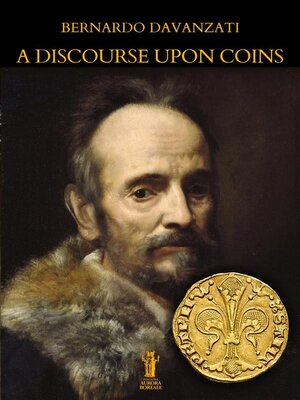
Sign up to save your library
With an OverDrive account, you can save your favorite libraries for at-a-glance information about availability. Find out more about OverDrive accounts.
Find this title in Libby, the library reading app by OverDrive.



Search for a digital library with this title
Title found at these libraries:
| Library Name | Distance |
|---|---|
| Loading... |
Bernardo Davanzati (Florence, 31 August 1529 - Florence, 29 March 1606) was a scholar, an agronomist, an economist and an initiate of the Grand Duchy of Tuscany and one of the major protagonists of Florentine life and society in the last phase of the Renaissance. A man of great culture, he was also famous as a translator of classical works.
Davanzati wrote on economics as a metallist. His works included Lezione delle monete (Discourse upon Coins, written in 1588) and Notizie dei cambi (1582). Davanzati's Discourse upon Coins was translated into English by John Toland and published in London in 1696.
To judge him correctly it must be considered that he was a contemporary of Gasparo Scaruffi (1582), of Jean Bodin (1578), and of William Stafford (1581), men who wrote their books half a century before Petty and Locke were born.
The Davanzati's Discourse Upon Coins, in particular, contains many features of modern Central Banking theory; for example, it is stated that money is a public good, a service that the prince renders to the people and that must be paid for by general taxation, etc.
Davanzati wrote on economics as a metallist. His works included Lezione delle monete (Discourse upon Coins, written in 1588) and Notizie dei cambi (1582). Davanzati's Discourse upon Coins was translated into English by John Toland and published in London in 1696.
To judge him correctly it must be considered that he was a contemporary of Gasparo Scaruffi (1582), of Jean Bodin (1578), and of William Stafford (1581), men who wrote their books half a century before Petty and Locke were born.
The Davanzati's Discourse Upon Coins, in particular, contains many features of modern Central Banking theory; for example, it is stated that money is a public good, a service that the prince renders to the people and that must be paid for by general taxation, etc.







